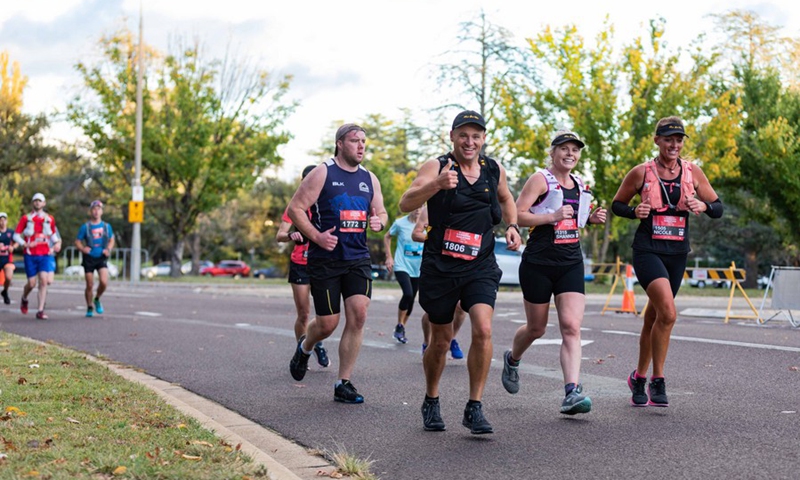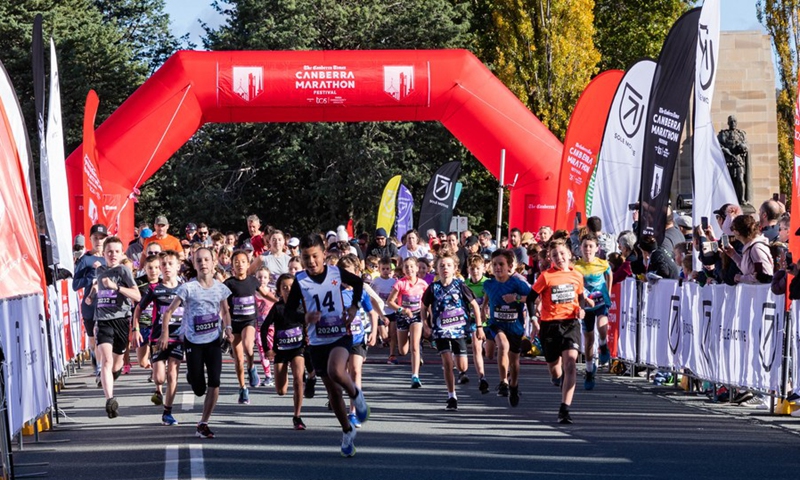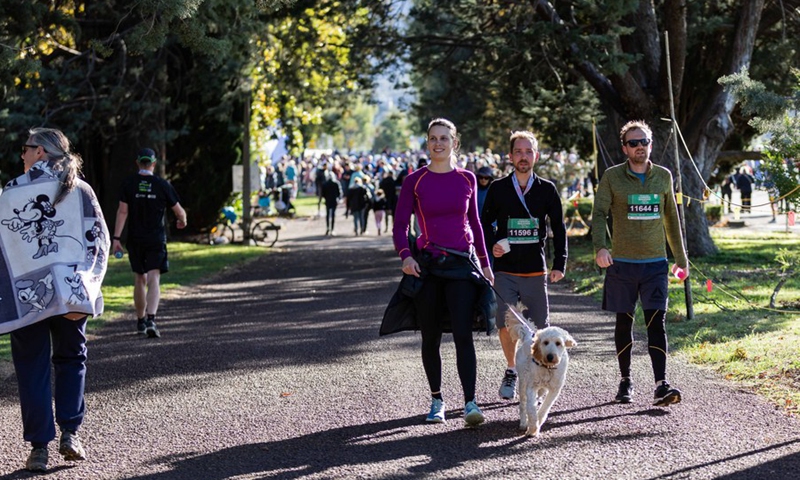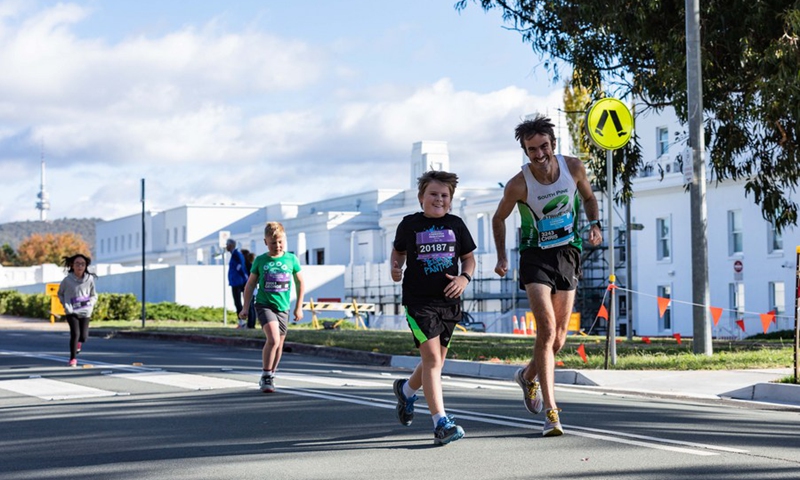
Photo taken on April 11, 2021 shows participants at the Marathon Festival in Canberra, Australia.(Photo: Xinhua)

Photo taken on April 11, 2021 shows participants at the Marathon Festival in Canberra, Australia.(Photo: Xinhua)

Photo taken on April 11, 2021 shows participants at the Marathon Festival in Canberra, Australia.(Photo: Xinhua)

Photo taken on April 11, 2021 shows participants at the Marathon Festival in Canberra, Australia.(Photo: Xinhua)
When yellow leaves swirled in the wind in Australia on Sunday, thousands of people in Canberra started their day running and sweating, while some others along the roads watched and cheered for them.
Gillian Smith took part in the Marathon Festival with her family. When she finished her 10-km race, she hurried to meet her children who were about to join the 2-km Kids Dash.
"It is a bit of fun for the whole family," she told Xinhua.
The woman came from Sydney about three hours' drive away, and she joined with her parents in Canberra for the Easter holiday. "I did this one today because it is the first Marathon event since COVID," she said.
According to Julie Tedde, race director of the Marathon Festival, about 8,500 people participated in the event. About half of the runners were locals of the Australian Capital Territory (ACT), while the other 50 percent were from inter-state.
"We have people from the age of 4 all the way into the 70s. So a big range of athletes," she said.
The festival consisted of six events: the 50-km race, the marathon, half marathon, the 10-km race, the 5.4-km race and the 2-km Kids Dash.
"People are able to run around the streets of Canberra, and run around some of Canberra's amazing buildings," said Tedde.
The Marathon Festival which was canceled last year has been held in Canberra for about 40 years and is known as one of the oldest city marathons in Australia.
"People have been waiting a long time," said the race director. "Some people have started running since COVID. We bring everyone together to celebrate running and what they have been doing for a long time."
"China 100," a running group organized by the ACT Chinese Students and Scholars Association (CSSA), also joined in the Marathon Festival. Members of the group included both primary school students and adults.
"This event established a platform for the cultural and sports exchange between local people and the Chinese students and communities," said Zhan Xiuchen, a student with the Australian National University (ANU) who was a volunteer from the CSSA.
"We could not only go outdoor and get together to challenge ourselves, but also show our healthy and optimistic lifestyle," he said.
Wang Yutong, 20, who took part in the 5.4-km race said coming to the event was a step forward in her growth.
"I seldom participate in local activities here," she said. "The Marathon Festival provides a chance for me to know more about this city geographically and culturally."
Some members of the Chinese Embassy in Australia also ran in the event, including Wang Xining, minister of the embassy.
He learned from students that the logo of "China 100" was to celebrate China's attaining the first centennial goal this year.
"To achieve the second centennial goal these young students will be the main force," he said. "I am happy to see so many of them today. Running helps them keep fit, and health is of utmost importance for their work and study."
He also hoped that the Marathon Festival could boost exchanges between the Chinese students and the local people. "One of the goals for overseas study is to enhance understanding and strengthen people-to-people ties," he said.
